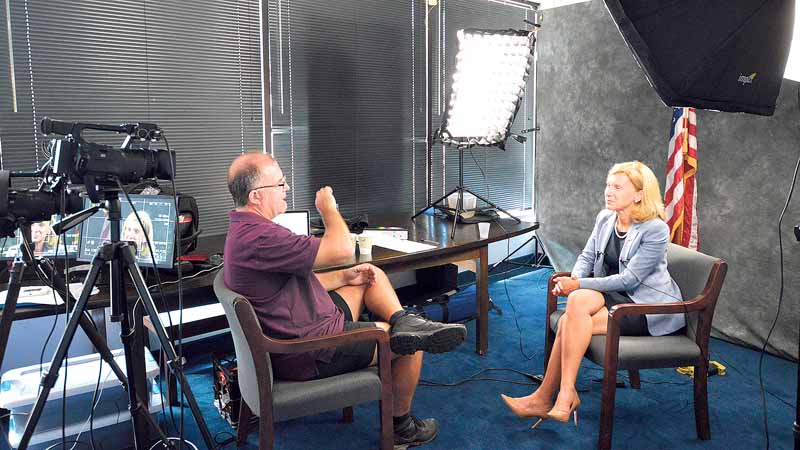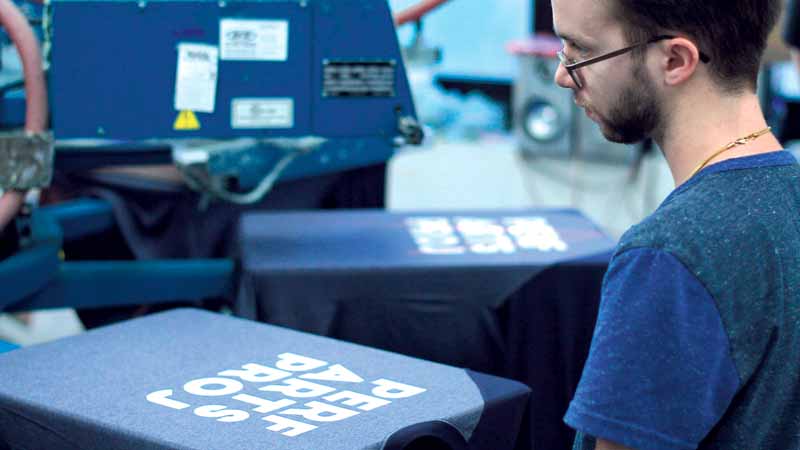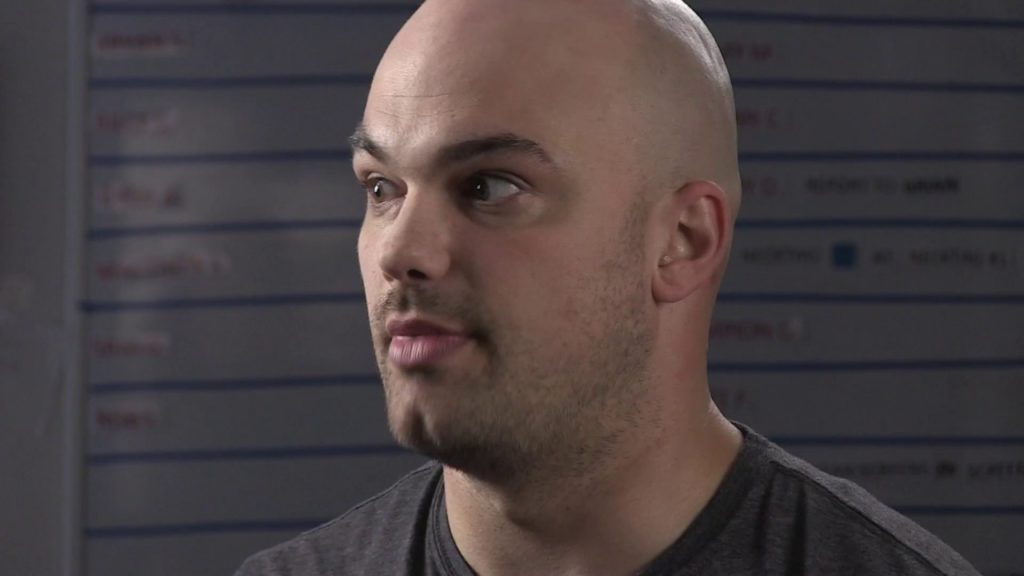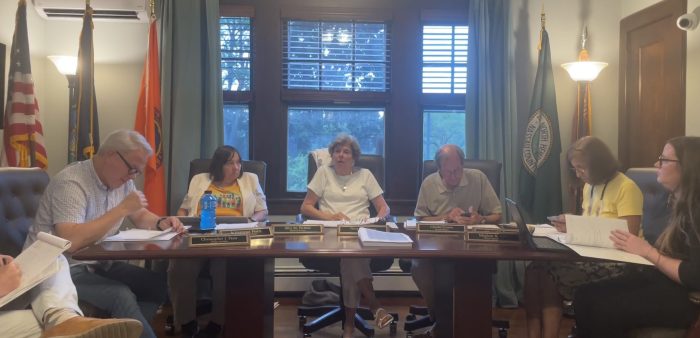After creative director of Mesh Omnimedia Stephen Mackey worked on marketing for Spectrum Designs, a Port Washington based nonprofit 501(c)3 organization that provides employment opportunities to individuals with autism within a social enterprise, he was inspired by the nonprofit’s new venture to grow into a larger building and business. Mackey decided to film a feature-length documentary, This Business of Autism, about Spectrum Designs’s move down the street to a larger facility that will enable the organization to employ 50 more workers. But soon the film took on a life of its own, as it morphed into a larger story about opportunities for adults with autism throughout the country.
“In 2015, Michael Prounis, a friend and client of our agency, asked us to do a logo design and a website for Spectrum Designs,” said Mackey. “I suggested we film a corporate overview video and I remember being incredibly moved and impressed by the quality of their products when filming their employees working on the custom apparel. It just inspired me, so I kept up with the company and started following them on Facebook. In April of 2017, I saw they completed a capital campaign to purchase a larger building with over 7,000 square feet of production space. I felt this expansion would be a perfect narrative arc to use as a framework for a film.”

CEO of Spectrum Designs Patrick Bardsley explained that the move to the new space, which is set to open on March 23 with a grand opening ceremony beginning at 2 p.m., will allow Spectrum Designs to double its number of employees, bringing in more than 50 people and making the nonprofit one of the biggest employers of people with autism in New York State. With the move from 1,500 to 7,500 square feet, Bardsley said the nonprofit has tried to make the transition as comfortable as possible for its employees, and added features such as quiet zones on both floors; an outdoor terrace; upgraded exhaust fans and hand dryers to reduce noise, improve airflow and limit noise sensitivity; LED lights throughout the entire building to avoid halogen bulb flicker, which can cause sensory distraction/discomfort; and kept the same color paint as the previous space to create familiarity and comfort on a sensory environment level.
“It was like a 22 to 24-month process from when we identified we needed a new space,” said Bardsley. “We wanted to make the building as functional as possible, but also be compassionate to our population. It’s a dream come true, especially with the documentary wrapping at the same time. We never dreamed of this when we started in the barn in Manhasset. We never thought our little idea would grow to be this. We are so thankful to our family and friends from the community. It’s no longer just our vision, but a shared vision.”

But Mackey didn’t want the documentary to be perceived as a Spectrum infomercial, and Prounis, now executive producer for the film, encouraged the production team to explore other trending societal themes such as corporate responsibility. Thus the film that started about Spectrum’s expansion blossomed into an inspiring story about autistic adults, their job opportunities and the possibilities of employers not defining adults with autism by their challenges. Filming has taken the crew across the country, and includes interview footage with Dr. Temple Grandin, the world’s foremost celebrity with autism.
“The primary theme of the documentary is the economic impact for everyone—both neurotypical and neurodiverse—of providing jobs for this group of people and giving them relevant, engaging opportunities so they have a semblance of independence,” said Mackey. “We want employers to think of people with autism in terms of their capabilities instead of their challenges.”
“This film can educate the wider public about what this population can do,” added Bardsley. “It’s not just about us. It’s about the awareness it generates and perspectives it shifts.”

Bardsley explained the film will have two major impacts, one emotional and one economic. While the film will appeal to people emotionally, depicting people who are fulfilled and feel happy about feeling a sense of independence, the film also appeals to those who want to look at the economic aspects about hiring adults with autism.
“Instead of having adults with autism just collecting social security checks, they are now collecting less because they are employed, paying taxes and taking their money to local delis and movie theaters,” said Bardsley. “It’s so circular and it’s a good thing.”
Mackey hopes to show This Business of Autism at film festivals around the country and have a screening in Port Washington. Both Mackey and Bardsley hope that showing the film will inspire others to utilize Spectrum Designs’ blueprint and create their own nonprofit business that employs adults with autism.
“The movie is moving, inspiring, funny, emotional, heartbreaking,” said Mackey. “There is a complete range of emotions when you immerse yourself in this community. Spectrum has ignited something very special, and I hope to challenge the neurotypical community to ask, what is the next Spectrum going to be?”
The expanded Spectrum Designs is located at 366 Main St., Port Washington. For more information about Spectrum Designs, visit www.spectrumdesigns.org. For information about This Business of Autism, visit www.thisbusinessofautism.com.
What did you think of this article? Share your thoughts with me by email at cclaus@antonmediagroup.com.
































